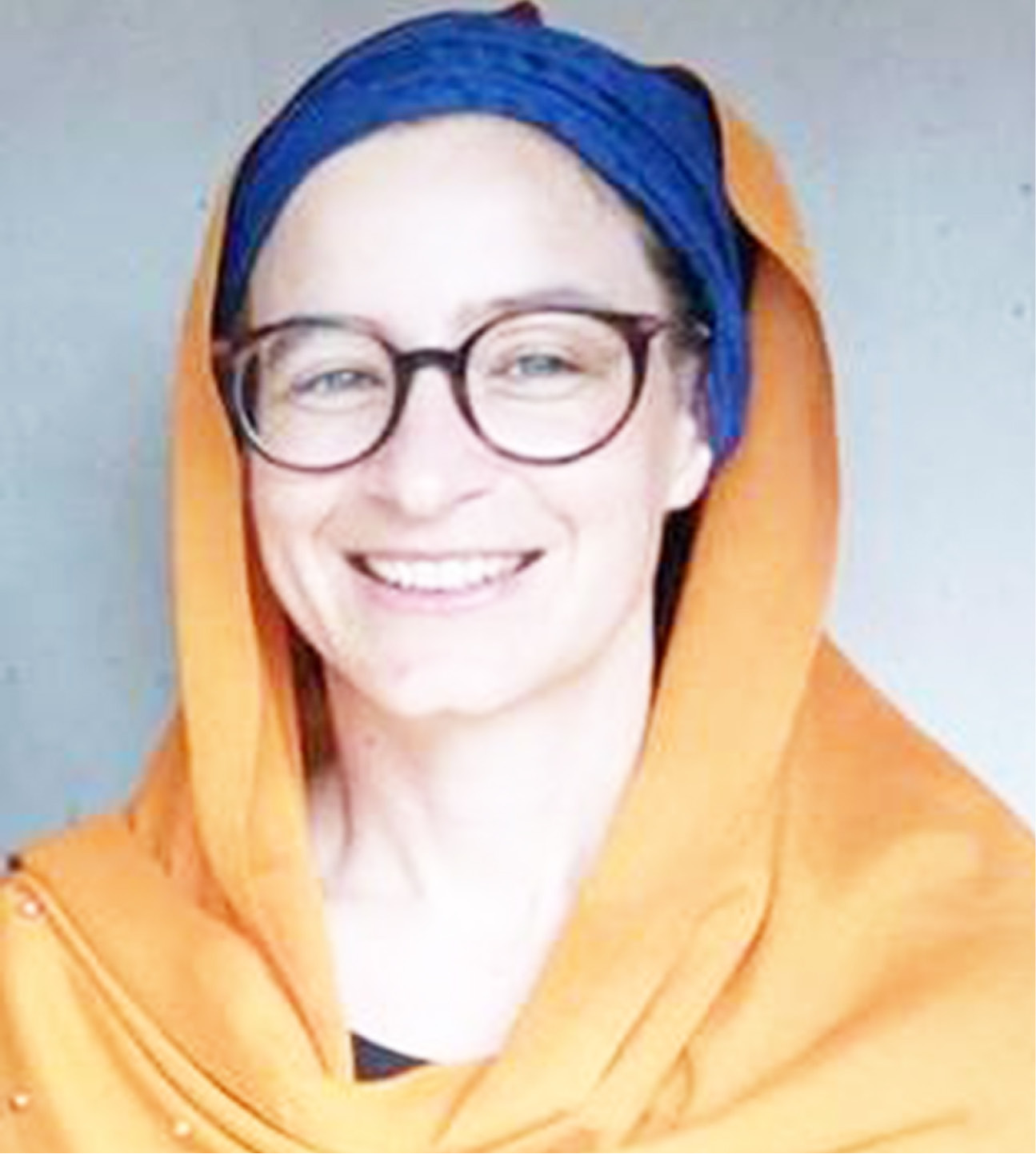Dr Hannah Hoechner is a German scholar whose search for clarification on the almajiranci system of Quranic education in the face of religious radicalism led to Kano city where she interacted one-on-one with the almajiri. The interaction gave birth to a documentary ‘Duniya juyi-juyi’. In this interview, Dr Hoechner speaks about her motivation for the film which captures findings of her painstaking research.
Daily Trust: Can you tell us a little about yourself?
Dr Hannah Hoechner: I have just been appointed as lecturer in education and international development at the School of International Development, University of East Anglia. Before that, I held postdoctoral positions at the Université libre de Bruxelles and the University of Antwerp in Belgium. I completed my doctorate at the University of Oxford in 2014 under the supervision of Prof Laura Camfield and the late Prof Abdul Raufu Mustapha. My doctoral thesis, which forms the basis of my recent book ‘Qur’anic Schools in Northern Nigeria: Everyday experiences of youth, faith and poverty’ (CUP/International African Library) offers an ethnographic and participatory study with young Qur’anic school students in Kano. As part of my work in Nigeria, I produced the participatory docudrama ‘Duniya juyi juyi – How life goes’, which shows Qur’anic school students’ own perspective on their education.

DT: What informed your latest docudrama and a book on Islamic education in northern Nigeria?
Hoechner: I actually first got interested in Qur’anic schooling in Senegal where so-called talibés live in very similar circumstances to those of the almajiri. Quite like in Nigeria, the talibés spark a lot of controversy in Senegal; many people think of them as ‘child beggars’ and ‘street children’. I found it surprising and frustrating that despite these misgivings, few people try to understand what the young Qur’anic students themselves think about their education. That’s how I got interested in conducting participatory research with Qur’anic students. My supervisor was working in northern Nigeria. That’s what motivated me to conduct my study there rather than in Senegal – and I’m happy I did! I believe that there is a real need to learn more about the experiences and perspectives of poor young people growing up in northern Nigeria, especially in the current political context.
DT: Have you done any similar project?
Hoechner: No, my research career started in Nigeria. I have since conducted research on Islamic education in Senegal and the US, but it all started in Kano.
DT: How different is Quranic education in Nigeria from other places?
Hoechner: There are many similarities between classical Qur’anic schools in northern Nigeria and other parts of the Sahel. They mostly focus on Qur’anic memorization; often the male students come to live with their teacher, many of the younger students beg for food and other necessities, most schools follow the seasonal rhythms of the region, meaning that individual students, and entire schools, migrate in accordance with agricultural work cycles. Therefore, Qur’anic schools across the region have many things in common. However, what may be unique to northern Nigeria, unfortunately, is the abuse and denigration Qur’anic students are exposed to there. I have heard Qur’anic students in Senegal complain about being insulted when they beg, but I think in Nigeria, contempt for Qur’anic students is even more widespread. In the book, I argue that the almajiri have become convenient scapegoats for various social ills in Nigeria, ranging from petty theft, rioting to Boko Haram. Because they lack the social power to defend themselves against unfair accusations, these accusations take on a life of their own, which weakens the almajiri’s status further.
DT: This film came at a time the almajiranci system is facing strong criticisms from the elite. What is your view on this system of education in Nigeria today?
Hoechner: There are obvious problems with the system; including inadequate access to food, shelter, hygiene facilities and health care for its students. However, I think that many of the solutions put forward to address these issues are also fairly problematic. For example, I don’t think it makes any sense to ban the system or to ban its students from begging. After all, people resort to this system of education for a reason. Secular education of worthwhile quality is inaccessible to many poor rural families; most Islamiyya schools levy fees. The almajiri system is accessible even when other educational options are not. I spoke to parents who preferred that their children beg to keeping them at home and knowing for sure that they won’t eat their fill. I think we need to look closely at the difficulties poor rural families face if we want to come up with solutions to the almajiri’s plight. Clearing children off the streets through a ban on begging provides relief only to the urban middle and upper classes who feel disturbed by the sight of almajiri roaming about with their bowls, but it doesn’t do anything to relieve rural poverty or to help the almajiri.
Finally, let me emphasise that there are also positive aspects of the almajiranci system that I believe should be salvaged and that could indeed enrich the ‘modern’ education system. Let me just give an example: In the almajiranci system, students progress in their studies at their own pace. This makes the system very inclusive because students who need to absent themselves from school for various reasons (e.g. to help their families with the farm work during the rainy season) can return to school and resume their studies where they left them. The secular education system does not afford students this flexibility.

DT: Do you share the misconception that because of the social disconnect with their families, this group of young people are becoming a threat to the society?
Hoechner: I think we have to look very carefully at the various assumptions underpinning this notion that the almajiri eventually become threat to society. Where is the evidence for it? People believe quite willingly whatever negative stories they hear about the almajiri but often the empirical evidence to back these stories up is missing. As I said before: the almajiri are convenient scapegoats. As their reputation is predominantly bad, it is easy to claim that they are responsible for negative incidents – quarrels, thefts, and so on – in their neighbourhoods. Accusations chime with people’s preformed opinions and therefore seem plausible. In addition, as newcomers and strangers at their places of study, the almajiri lack strong spokespersons to stand up for them and to defend their interests. Accusing them carries little risk of stepping on the toes of powerful protectors.
Another problem with the idea that the almajiri eventually become threats to society is that it takes problematic outcomes for granted without exploring how the almajiri themselves experience the conditions they are living in. What I argue in the book is that indeed the almajiri system offers poor young people a way forward in difficult circumstances and an identity in which they can take pride, even when other people look down on them. Being an almajiri makes being poor more bearable because it allows the students to reinterpret their deprivation as educative and purposeful – as a form of voluntary asceticism as it were. It is important to understand what the almajirai themselves think about their education if we want to understand the impact this education has on them.
DT: Can you share with our readers a little about the film?
Hoechner: After some months of fieldwork during which I continually encountered negative stereotypes about the almajiri, I had the idea of producing a documentary film together with some of the Qur’anic students I had began to know better. I thought that through a film, they would have an opportunity to make their views known about their education, and about how society treated them. The idea was to involve boys and young men living as almajiri in every step of the project, from scriptwriting to editing. Through training, they should be able to take control of the project as far as possible. I secured funding from the Goethe Institute Kano, support from a local NGO, the Almajiri Child Empowerment Initiative, and permission from three different Qur’anic teachers to let their students participate on their ‘weekend’ days Thursday and Friday. First, we met for various scriptwriting sessions, accompanied by long discussions about the topics the youths wanted to cover and messages they wanted to get across to the public. Then we met for practical filmmaking training with two professionals from the Kano film industry, ‘Kannywood’, followed by shooting sessions at the Qur’anic schools of the participating almajiri. Next came laborious editing sessions, and then finally a well-attended premiere at the Goethe Institute Kano. It took us about three months to produce the film.
Our film, or docudrama, tells the story of Aminu, who is sent to Qur’anic school in the city because his father believes he will progress better in his studies away from home. Aminu struggles to find a place to sleep, enough food to eat every day, and money to buy soap. He is bullied by an older student in his school, abused by his employer, and denigrated by people in his neighbourhood. But against the odds, he eventually manages to secure reputable employment as a shop assistant and succeeds in his Qur’anic studies. The film’s most critical message is for the communities in which the almajiri live, who treat them condescendingly, fail to support them, and consider them as labour power rather than as people.
If anyone is interested in watching the film, it’s available on the internet and it’s also available for download from Cambridge University site.
DT: How did you get the characters for the film?
Hoechner: The participating almajiri acted in as many capacities as possible, and we cast other children’s roles with almajiri from their schools and with children from the neighbourhood, not least because we did not have the funds to engage many professional actors but finding and training lay actors for adult roles was difficult, as those likely to perform best in the roles we needed (Qur’anic teachers and almajiri’s parents, who are often rather conservative, and nasty employers, who are by definition uncooperative) were least likely to agree to participate. Eventually, we engaged several Kannywood actors to act in the roles we were otherwise struggling to fill.

DT: Being a foreigner and a female in a conservative environment, what can you recall as challenges you had while producing the film?
Hoechner: Fortunately, most malams (Qur’anic teachers) and almajiri were very supportive, both with respect to the film project and to my research more widely. Leaving one’s home to search for knowledge is a well-known theme among the constituencies of the almajiri system, and the fact that I had come all the way from the UK to Nigeria to learn about Qur’anic education was welcomed by many of my respondents. Also aware of negative discourses circulating about the Qur’anic education system, my respondents appreciated that I sought to represent their perspectives.
One big challenge we faced during the film project is that some people struggled to understand that our budget was very limited, and that we didn’t produce the film to make money, but to make the perspectives of the almajiri known to a wider audience. Within their communities, the almajiri were exposed to suspicions about their participation in the project. They were accused, for example, of being either dupes, or liars, agreeing to ‘work’ for free for me and/or for the Goethe Institute (which, it was presumed, would make a lot of money one day by selling the film), who had hidden the money I presumably paid them so they would not have to share it.
I found these suspicions extremely frustrating – but also revealing about the almajiri’s weak position within society. Suspicions and rumours could flourish in a context where the almajiri have little social power to speak out against them, which leads back to the point I made earlier about the almajiri being vulnerable to all sorts of accusations.
DT: How were you able to surmount the challenges?
Hoechner: There wasn’t anything I could do about these rumours and suspicions apart from explaining my own motivation behind the project once again. The problem is that these suspicions are anchored in people’s wider experiences which nurture their perception for example that NGOs pursue mostly their own interests, or that Western funding tends to come with a hidden agenda. So unless these wider experiences change, it’ll be difficult to effectively address such rumours and suspicions.
DT: You seem to have good command of the Hausa language. Is it in anyway related to the project?
Hoechner: My Hausa used to be much better at the end of 2011, after having spent an entire year in Kano. Unfortunately, I didn’t have many opportunities to practice it since leaving Nigeria. I started learning Hausa with a private teacher in 2009 and then took lessons at the Centre for the Study of Nigerian Languages at BUK for three months in 2011. This allowed me to get a grasp of the basic structure. I really started improving my Hausa though when I moved to Albasu, a rural LGA in eastern Kano State. There weren’t many people to speak English with in Albasu.
DT: What message do you want to send across through this piece of work?
Hoechner: I have three core messages: First of all, I encourage people to reconsider what they have come to consider self-evident truths about the almajiri, and to enquire whether there is empirical evidence to back up the various accusations levelled against them.
Secondly, I wish to draw attention to the role that wider society plays on the almajiri’s plight. Many debates about the system have centred on the shortcomings of their presumably ‘negligent’ parents and ‘exploitative’ teachers. However, I heard only relatively few complaints from them in my research about their parents and teachers. Yet, I heard plenty of complaints about richer members of society who insult them when they beg, who employ them as domestic helps for long hours without paying them decent wages, who give them food that is no longer apt for eating and who generally treat them as worthless and undeserving of respect.
Finally, I wish to highlight that the almajiranci system exists for a reason: it helps poor families cope with challenging circumstances. It provides a way forward when other educational options fail; it provides an identity in which its students can take pride and helps them keep a positive outlook on themselves when they are excluded from other forms of education. If the system didn’t exist, its students would probably be worse off. We should stay away from bans and instead think about how we can support the almajiri and their families in meaningful ways.




